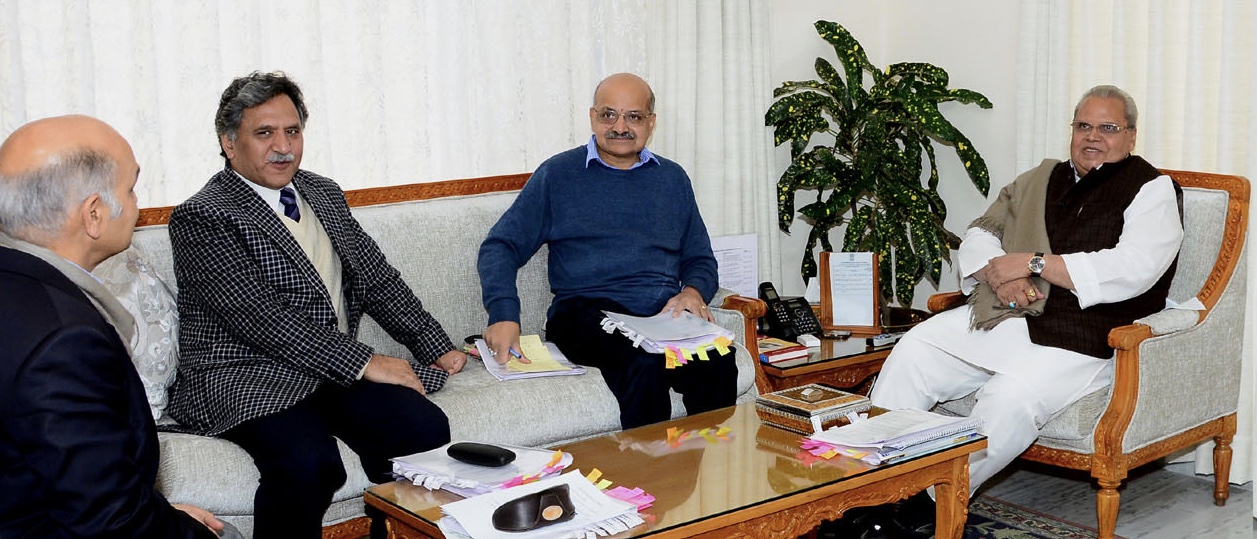by Khursheed Wani

From the day Governor Satya Pal Malik dramatically dissolved the state assembly in November 2018, the election discourse began taking the centre stage. Irrespective of whether the ground situation is conducive for holding the massive exercise, the pro-election political class has jumped onto the election bandwagon, already. Almost every day there are political workers quitting one party to join the rival group.
The uncertainty over holding of the elections, however, looms large. There is no definite assessment as to whether the elections for the state assembly and the Lok Sabha would be held simultaneously or the assembly polls would be delayed until a new government takes over in Delhi. After its route in recently held assembly elections in five states, the BJP is finding it difficult to fix priorities vis-a-vis Jammu and Kashmir. The decision to pull out from the Mehbooba Mufti led coalition has not yielded the desired results for the BJP.
Had the coalition survived, the assembly elections would have been due by the end of 2019, but the unyielding rebellion in Kashmir, especially in the southern districts, frustrated many a projections. The tested method of moulding a rebellious and anti-election atmosphere into long queues of people outside the polling booths did not work this time around.
Home Minister Rajnath Singh sought to clear air on the conduct of elections. “If the Election Commission wants (to hold elections in the state along-with the general elections), our government will have no objection.” Replying to a debate in Rajya Sabha on proclamation of imposition of President’s rule in the state, Singh said there would be no obstruction from the government of India for holding elections in the state. “We are willing to provide whatever security force the Election Commission wants for holding the elections there,” he said. The ball is in EC’s court and it is no secret that the final call is taken in consultation with the government in Delhi. On the ground, the 400 companies of the central armed forces, deployed specially during 2018 summer for holding municipal and panchayat polls were withdrawn.
If Governor Malik’s claims about the conduct of “smooth and violence free” local polls are anything to go by, there is no hurdle in holding the elections at any point in time. The elections are not going to change the course of history because the public response to the polls has not changed an iota. It will again be an exercise to manage the affairs of the state. This time, the hands to manage it may be changed.
It is understood that Governor Malik is not interested in holding assembly polls together with parliament elections. He rushed into dissolution of assembly despite getting a viable option for the formation of government to perpetuate his rule for a longer period. This situation paved way for the imposition of the President’s rule. Governor can site plausible reasons to plead for delay in assembly polls including continuation of a campaign against militancy. This, he may argue, would pave way for gradual involvement of people in the electoral process. The Parliament elections, like the panchayat and municipal polls, would be used to further test waters before the actual exercise of assembly elections is carried out.
However, the pro-election parties are opposing inordinate delay in assembly polls. The reason for forging a daylong coalition between PDP, NC and the Congress, inter alia, was to narrow down options for the Governor and compel him to dissolve the assembly. Soon after the dissolution, all parties have plunged into the poll campaign. Mehbooba even dared to venture into Shopian and Pulwama to rediscover her rhetoric to identify her party with militants and their families. Even if her overtures drew flak from the public, she has chosen to tread the path with assembly polls in sight.
The pro-election parties would argue that sustained Governor’s rule would do more harm to the Valley. “The Valley is continuously being deprived of its legitimate rights. The focus of developmental activities has been on areas other than Kashmir. The Valley districts are fund starved and there is nobody in the administration to agitate the requirements of the Valley residents,” a senior NC leader said, adding, “This situation needs to be reversed as soon as possible.”
He argued that in absence of an elected government, the state would continue to be managed by people who are oblivious of the Kashmiri sensitivities. “During the Governor’s rule, scores of laws have been imposed or amended, which may not have seen the light of the day if an elected government was in place,” he said.
Finance Minister Arun Jaitley elaborated the repeated electoral frauds committed in Kashmir during the NC and Congress regimes. In absence of a genuine electoral process involving all sections of opinion in Kashmir, every election would be a method of management rather than an ideal democratic process. In this backdrop, it is immaterial for the people whether the elections are held simultaneously or separately. However, every election comes with a huge set of miseries for the people including delay in routine developmental activities. The conventional wisdom, therefore, suggests that the elections must be held simultaneously. This is the only way-out for saving a season for the business, booking losses since 2014.














